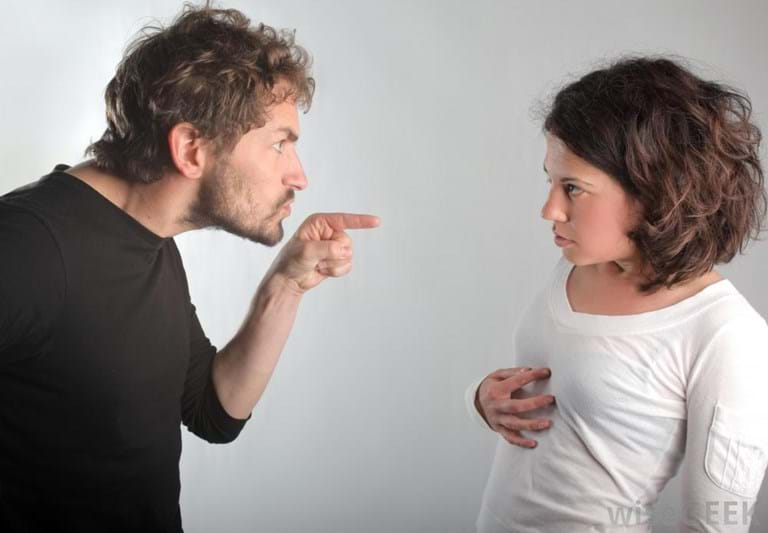Counselling for Relationship Conflict
Fighting or arguing with your partner hurts as no other fights can. There are good reasons for that. You are invested in each other. Invested with your feelings, your time, your body, your loyalty and your dreams for the future.
When intense fights occur, it can feel as if the foundations of your life are in jeopardy. The fear and insecurity that result can then lead on to further, more desperate fighting. Though on the surface you are attacking each other and pushing each other away, in reality you long to be close again and to stay connected but have no idea how to make this happen. A growing body of scientific research by Dr. Sue Johnson, spanning over 20 years, shows that when couples are fighting they are actually reaching for their partner, seeking to remain connected and secure.
We have a wired-in need for emotional contact and responsiveness from our partner. It's a survival response, the driving force of the bond of security a baby seeks with its mother. This idea is at the heart of attachment theory, which indicates that the need for secure attachment that started in childhood, never disappears; it evolves into the adult need for a secure emotional bond with a partner. Just as a mother lovingly gazes at her baby, so two lovers stare into each other's eyes.
Through this bond of attachment, partners in love become emotionally dependent on each other for nurturing, soothing, and protection. Although our culture has framed dependency as a bad thing and a weakness, it is not. Being attached to someone provides our greatest sense of security and safety. It means being able to depend on a partner to respond when you call. It means knowing that you matter to him or her, knowing you are cherished, and knowing that he or she will respond to your emotional needs.
In a new relationship we start out intensely connected to and responsive to our partner. But our level of attentiveness tends to drop off over time. We then experience moments of disconnection, times when we don't express our needs clearly. Perhaps he is upset and really wants to be comforted; but she leaves him alone, thinking that he wants solitude.
Such moments are actually inescapable in a relationship. If you're going to dance with someone, you're going to step on each other's feet once in a while. However, losing the connection with a loved one jeopardises our sense of security. We experience a primal feeling of panic. It sets off an alarm in the brain's amygdala, our fear centre, where we are highly attuned to threats of all kinds. Once the amygdala sends out an alarm, we don't think—we act. That’s when the fighting begins.
Fights are attempts to stay connected. If you and your partner fight often and without resolution, or have completely closed off from each other to avoid further conflict, it’s time to seek help.
How Counselling Helps When a Couple is Fighting
Counselling is possibly the ideal space in which you and your partner can sort out your fights safely. In counselling you can talk about your needs and fears and express difficult feelings, without recriminations and without being judged.
Usually there is a hidden message lying beneath a fight, one which you may not know how to express or even be aware of. Our trained counsellors can help you work out what this message really is. We can help you identify what is really going on for you both, what you both need, and what you are really trying to say to each other.
At ARM we have worked with many couples utilising Emotionally Focused Therapy (EFT). The results of EFT are quite literally astonishing. EFT is a systematic and structured approach to couple therapy founded by Dr Sue Johnson. A substantial body of research now exists which demonstrates the effectiveness of EFT. Research shows that 70-75% of couples using EFT move from distress to recovery and approximately 90% show significant improvements.
EFT is now used all over the world for couples counselling and is one of two evidence-based therapies approved by the American Psychological Association for treatment of couple distress. Some of the benefits of EFT are:
- couples break the negative cycle of fighting
- couples build trust, communicate clearly, and resolve conflict
- couples develop the tools necessary to express needs and desires safely
- couples get to the bottom of those painful feelings and transform them into useful, productive emotions
- couples learn to relate in ways that neither attack nor reject
- couples heal from deep painful relationship wounds
- couples feel safe to be emotionally close and stay close
- couples form a bond that nourishes and fulfils unmet needs
- couples get to the root of problems between them
- couples improve how they feel about themselves and each other
- couples develop close emotional connections with others in their lives
At All Relationship Matters, our highly skilled counsellors have helped many couples stop their fighting, find out what’s really going on for each partner, repair their relationship, and rebuild closeness, trust and safety. Instead of the painful deadlock situation which you are experiencing now, counselling can help you find deeper compassion, respect and mutual understanding. Through counselling, you and your partner can develop a deeper bond of intimacy which will sustain your relationship in the long-term.

